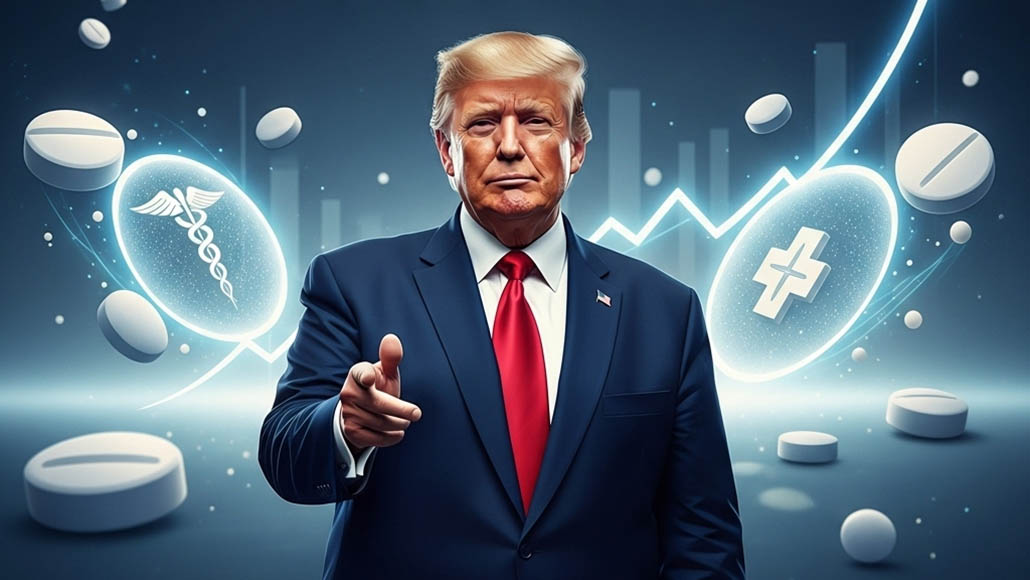The Trump administration is going to pilot a voluntary program in 2026, wherein the pharmaceutical companies can offer rebates for certain drugs to hospitals that are participating in the 340B drugs discount program.
The pilot happens to depart from the traditional 340B model, which goes on to give hospitals an upfront discount for certain medication. Under this pilot, hospitals will receive rebates coordinated by drug manufacturers as per the Health Resources and Services Administration. In order to receive reimbursement, providers will have to submit data to the manufacturers within 45 days from the time the drug has been dispensed. There would be certain circumstances that would be considered as well. The rebate shall be received within 10 days.
Apparently, the American Hospital Association has already criticized the program, warning that deviating from the decades-old 340B program goes on to set a very dangerous precedent for the times to come.
Interestingly, the 340B drug pricing program was created over three decades back in order to support hospitals having a large number of low-income patients by requiring drugmakers to offer those providers very steep discounts on outpatient drugs. These were often about 20 to 50% off the list pricing of the drug. Since its conception, the program has grown to more than 55,000 covered entities in 2021.
The program has indeed become a flashpoint between the drugmakers as well as providers. Since the pharma companies say that the rebates, which happen to cover billions of dollars worth of drugs every year, unfairly slash their bottom lines. Some even argue that hospitals are cheating the program.
Drugmakers opine that hospitals have diverted the drugs to ineligible patients, or in some cases, they have even received duplicate discounts for the same medications. Hospitals, on the other hand, say that the 340B rebates are a required lifeline for hospitals having low operating margins.
Research is mixed when it comes to the efficacy of the program. There are some studies that have found that the program works as per what is expected, thereby enabling the hospitals to expand their services for low-income patients. There are studies that find that hospitals are not complying with the basic principles when it comes to 340B, which includes not reselling the discounted medications.
It is well to be noted that drugmakers have been pushing for the 340B drugs discount program so as to tamp down on what they say is fraud and waste in the program. In 2024, Eli Lilly, Sanofi, Novartis, and Bristol Myers Squibb sued the federal government in order to enable them to issue rebates for 340B drugs rather than upfront discounts.
A court had shut down those plans earlier in 2025. However, the ruling HRSA would have to sign off on such a kind of plan. While the Biden administration looked forward to upholding the traditional 340B model, the Trump administration has shown interest in adding more oversight to the program, which includes potentially putting the Centers for Medicare and Medicaid Services at the forefront when it comes to overseeing the rebates.
Now, the Trump administration is coming up with a pilot program, which, in a limited capacity, goes on to offer a chance to test the rebate system.
The pilot, which is going to be limited to only 10 drug products that are included on the CMS Medicare drug price negotiation selected drug list, is accepting the applications from drug manufacturers till September 15, with the start date of January 1 in mind.
Tom Engels, the HRSA administrator, in a statement, said that the program looks forward to addressing the concerns they have received from both covered entities as well as manufacturers while at the same time creating a much-measured approach towards the process of approving the manufacturer rebate models within the 340B program.
Apparently, the hospital groups have reacted in a negative way. 340B Health, which happens to be an association of more than 1600 hospitals, said that the transitioning to a post-purchase model would force some of the hospitals to pay an average of over $72 million upfront, thereby potentially straining their capacity to offer patient care services. The group said in a statement that it is rather worried about the administrative as well as financial cost of the program, especially if the Trump administration opts for expanding the pilot beyond the 10 drugs.
According to the vice president of advocacy, grassroots, and government relations with the American Hospital Association (AHA), Aimee Kuhlman, they are concerned that this guidance authorizes a prominent departure from how the 340B program has very successfully functioned for decades and sets a dangerous precedent for a possible harmful expansion in the days to come.
However, the AHA has also said that it appreciates the efforts put in by HRSA in order to impose stringent guardrails when it comes to its limited pilot program.
For instance, manufacturers are going to be in charge of handling all IT expenses that are related to submitting the drug purchasing data. The notice also needs no additional administrative expenditures for running the rebate model that are going to be passed onto the covered entities.
Besides this, HRSA mandates that the manufacturers cannot deny a rebate that is based on certain concerns of diversion or even duplicate discounts.




















